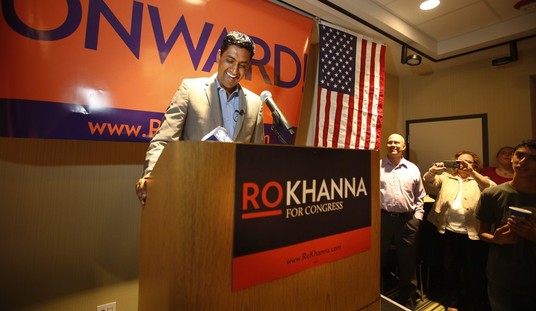Michael Barone looks at the mess that the Minnesota recount and the contest panel has wreaked on the Senate race, and wonders if we should scrap the whole thing. With invalid ballots hopelessly commingled into the results — judged so by the contest panel — the result appears custom-made for overturning by a Supreme Court guided by its own thinking on Bush v Gore:
Will the Minnesota Senate race end up in the U.S. Supreme Court? Here’s an article saying it might. Gov. Tim Pawlenty says Sen. Norm Coleman has “a plausible chance, a decent chance” to prevail. He says a second election is “highly unlikely” under Minnesota law. But couldn’t that law be changed?
My understanding is that the legal case currently before a three-judge panel is hopelessly compromised. Previous rulings in different counties have been inconsistent, with ballots with one kind of alleged defect counted in some counties and ballots with the same kind of alleged defect not counted in others. Most of the inconsistent rulings have tended to favor Democratic-Farmer-Labor Party candidate Al Franken, which is why he has overcome the lead Coleman had when the votes were being tabulated in November. Some allegedly defective ballots have been counted and then commingled with others, so that the decision to count them cannot as a practical matter be reversed. This would seem to me to raise equal-treatment problems as described in Bush v. Gore , even if the Supreme Court tries to say that Bush v. Gore was a one-of-a-kind case and not really precedent.
Unfortunately, as Minnesotans have discovered, Bush v Gore was not a one-off. The fatal flaw for the process, as opposed to the recount strategies of the Coleman and Franken camps, was the decision to leave the validity of absentee ballots to the campaigns and not the state itself during the recount, which should never have addressed that issue in the first place. Franken’s complaint about invalidly rejected absentee ballots should have been passed to an election contest, not the recount. Recounts should only count the ballots approved as legitimate on Election Night, and such a count would have certified Coleman the winner before an evitable contest addressed the valid question of inconsistent treatment of absentee ballots across the state.
Now the results are hopelessly flawed. The absentee ballots that got counted in the recount while having the exact same characteristics as those now rejected for counting by the contest panel cannot be identified. They have been tossed into the same piles as the rest of the counted ballots, with no identification to quarantine them back out. The contest panel has no way to remedy the problem in a consistent manner, save for rejecting the recount altogether as invalid and restoring Election Night totals to determine the winner.
Any solution reached by the contest panel will lack any sort of legitimacy at all with a wide swath of the Minnesota electorate. At this point, a special election seems the best possible solution, either in a run-off between Franken and Coleman or an open election. Unfortunately, the state legislature would have to act to mandate it and to invalidate the election results, and as long as Al Franken leads, the DFL-dominated legislature in St. Paul will sit on their hands.
Would a special election be a slam-dunk for Coleman? Barone doesn’t think so, especially in an open election. Without Obama on the top of the ticket, though, Franken probably doesn’t have good odds, but his organization might prove superior enough to make a difference. I’d guess Coleman would gain the most votes in a run-off — which is another reason why the legislature won’t act to provide one.







Join the conversation as a VIP Member